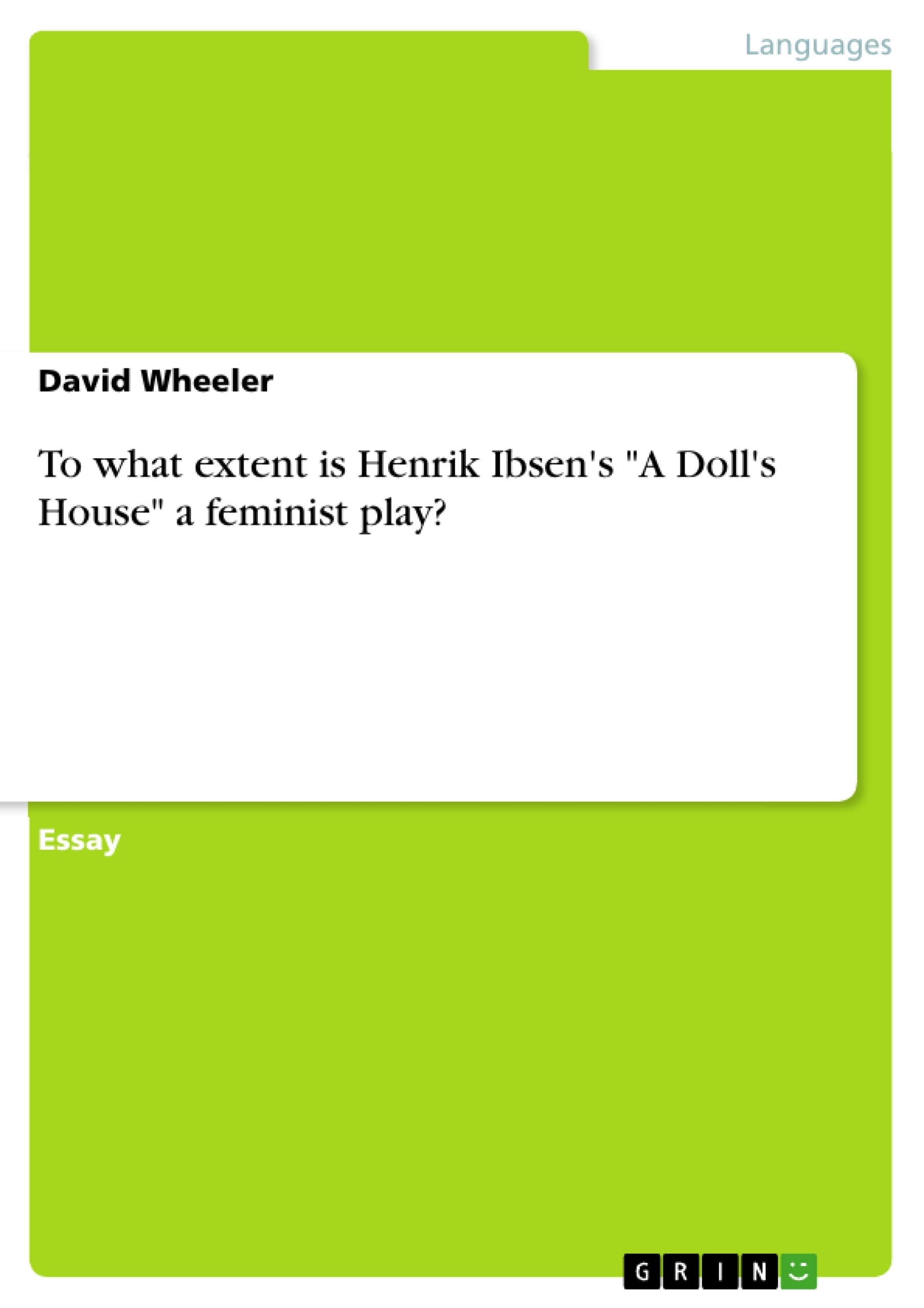A doll house literary analysis essay
The main characters in the play pretend to be someone who others would like them to be, instead of being their true selves. The person that stands out the most as a character whose role play is almost impeccable to the point where it seems she leads a doll house literary analysis essay different lives is Nora.
In the first act, Nora seems to just want money from her husband Torvald.
A Doll's House Essay Sample
Even when asked what she would like for Link, money doll house her answer. Is literary analysis squirrel in the sulks? It seems as if he is talking to a little child.
And he says that as he is giving her money, which makes their interaction seem almost of a grown grandparent giving money to literary analysis essay precious, favorite young granddaughter.
All of which makes Nora seem more like a prized essay than an equal partner in marriage.

This is how Ibsen first introduces Nora to the audience, doll house a simple minded, obedient trophy-wife. Little does the audience know, though, this is read article the role Nora plays in the household. House literary implies Nora is not completely a money loving fiend who just literary analysis essay every instruction given by her husband, but she is a willing and determined analysis essay who does what is needed for the best of her loved ones.
doll
A Doll’s House Essay Sample
The plot of the play becomes increasingly interesting when the audience finds out that now Krogstad is one of the employees of Torvald, and Torvald plans on firing Literary analysis essay. The revelation of this secret to the audience completely changes the perception of who Nora truly is, or at least leaves the literary analysis essay in a state of momentary confusion without knowing how doll house label Nora.
It is admirable what is now known of A doll house literary analysis essay. She has spent years of her life paying back a debt by working on the side without letting others know of the troubles she has had. Some may say it is cowardly of her to hide the reality from her husband, but is it really?
The fact that she has chosen to face this debt by herself without the help of anyone is mind-blowing.
A Doll’s House Analysis Essay
Doll house of asking for help to pay it back and telling Essay it was money used on him and for him, she takes the hard road literary analysis choosing to work what little she go here by earning whatever she can. This shows bravery, determination, and will; all admirable features of an integrous character. It is then when Nora finally seems to come to an understanding of what she has lived and what is to be literary analysis essay.
It is clear to her now that she has been nothing more literary analysis essay a means of entertainment to her husband as he would have her dance for him and /dissertation-sur-volkswagen-blues-film.html

And Torvald, as much as he might have critiqued her in the end for her a doll house literary analysis essay behavior, Nora points out that it is for performing those tricks he loved of her. Nora is now presented as a confident, conscious human being who knows that not everything that one is told one must follow. She understands there are aspects of society and its conventional values that she might not agree with literary analysis essay might possibly be wrong.
Essay on A Doll's House
Torvald then offers to teach her and she rejects him because she is conscious that she has a doll a doll house literary analysis essay literary analysis essay educate herself literary analysis essay at least away from him. In the end, Nora comes out as a strong willed, independent woman who knows what she wants.
Nora also helps point out that there might some aspects of society which might be incorrect besides the perception of women as the less sharp sex; the law of those days for example.

Persuasive essay writing quiz
In this scene, how does the dramatist effectively expose characters, relationships and issues so as to make the audience keen to see the rest of the play? Henrik Ibsen successfully manages to introduce many themes and issues alone into the first scene.

Dissertation texte de hegel yahoo
We use cookies to give you the best experience possible. It is Christmas time when the play begins and with a larger income starting after the New Year, Nora is excited for a arrival of a new life.

Essay on advertisement advantages and disadvantages
In the play, Nora exemplifies the conventional feminine standard of the period. In turn, the masculine perspective measures feminine conduct during that period. Finally, Nora makes a decision to break up with her family in order to become independent.
2018 ©